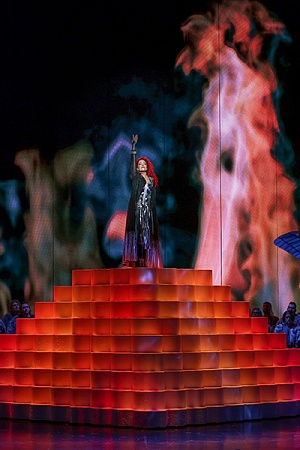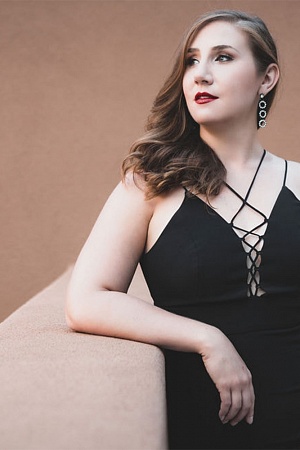Roberto Devereux (Melbourne Opera) ★★★★1/2
Melbourne Opera’s latest production is Gaetano Donizetti’s 1837 lyric tragedy Roberto Devereux, the last in his so-called Tudor trilogy. The company staged Mary Stuart in 2015 and Anna Bolena in 2016, to considerable acclaim. However, this airing of Roberto Devereux, an Australian première, is something else. Put simply, it was one of the most thrilling nights at the opera I have ever experienced – an opinion shared by many in the enthusiastic audience. If you haven’t heard of Melbourne-born soprano Helena Dix (Queen Elizabeth I) yet – you will. This is the most exciting voice I have heard since Joan Sutherland.
Devereux’s tragedy was a triumph for Donizetti, yet it was composed at a time of immense personal grief. In twelve months, Donizetti had lost his parents, a stillborn child, and his wife. It is as if the themes of the opera – rage, despair, jealousy, betrayal, and love set against the background of the ageing queen’s awareness of her imminent demise, court intrigues, and her infatuation with Robert Devereux, second earl of Essex – echo Donizetti’s inner turmoil.
Continue reading for only $10 per month. Subscribe and gain full access to Australian Book Review. Already a subscriber? Sign in. If you need assistance, feel free to contact us.















Leave a comment
If you are an ABR subscriber, you will need to sign in to post a comment.
If you have forgotten your sign in details, or if you receive an error message when trying to submit your comment, please email your comment (and the name of the article to which it relates) to ABR Comments. We will review your comment and, subject to approval, we will post it under your name.
Please note that all comments must be approved by ABR and comply with our Terms & Conditions.